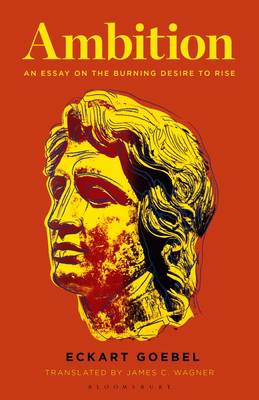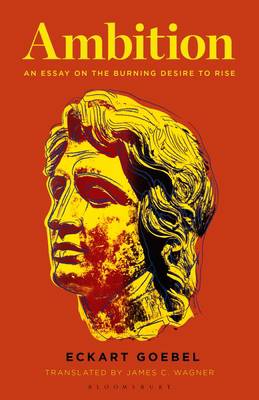
- Afhalen na 1 uur in een winkel met voorraad
- Gratis thuislevering in België vanaf € 30
- Ruim aanbod met 7 miljoen producten
- Afhalen na 1 uur in een winkel met voorraad
- Gratis thuislevering in België vanaf € 30
- Ruim aanbod met 7 miljoen producten
Zoeken
€ 169,95
+ 339 punten
Uitvoering
Omschrijving
We describe people who are "consumed" or "devoured" by ambition as if by a predator or an out-of-control inferno.
Thinkers since deepest antiquity have raised these questions, approaching the subject of ambition with ambivalence and often trepidation-as when the ancient Greek poet Hesiod proposed a differentiation between the good and the bad goddess Eris. Indeed, ambition as a longing for immortal fame seems to be one of the unique hallmarks of the human species. While philosophy has touched only occasionally on the problem of burning ambition, sociology, psychoanalysis, and world literature have provided rich and more revealing descriptions and examples of its shaping role in human history. Drawing on a long and varied tradition of writing on this topic, ranging from the works of Homer through Shakespeare, Freud, and Kafka and from the history of ancient Greece and Rome to the Italian Renaissance and up to the present day (to modernity and the current neoliberal era), Eckart Goebel explores our driving passion for recognition - that insatiable hunter in the mirror - and power.Specificaties
Betrokkenen
- Auteur(s):
- Vertaler(s):
- Uitgeverij:
Inhoud
- Aantal bladzijden:
- 272
- Taal:
- Engels
Eigenschappen
- Productcode (EAN):
- 9781501383847
- Verschijningsdatum:
- 30/06/2022
- Uitvoering:
- Hardcover
- Formaat:
- Genaaid
- Afmetingen:
- 140 mm x 216 mm
- Gewicht:
- 458 g

Alleen bij Standaard Boekhandel
+ 339 punten op je klantenkaart van Standaard Boekhandel
Beoordelingen
We publiceren alleen reviews die voldoen aan de voorwaarden voor reviews. Bekijk onze voorwaarden voor reviews.








